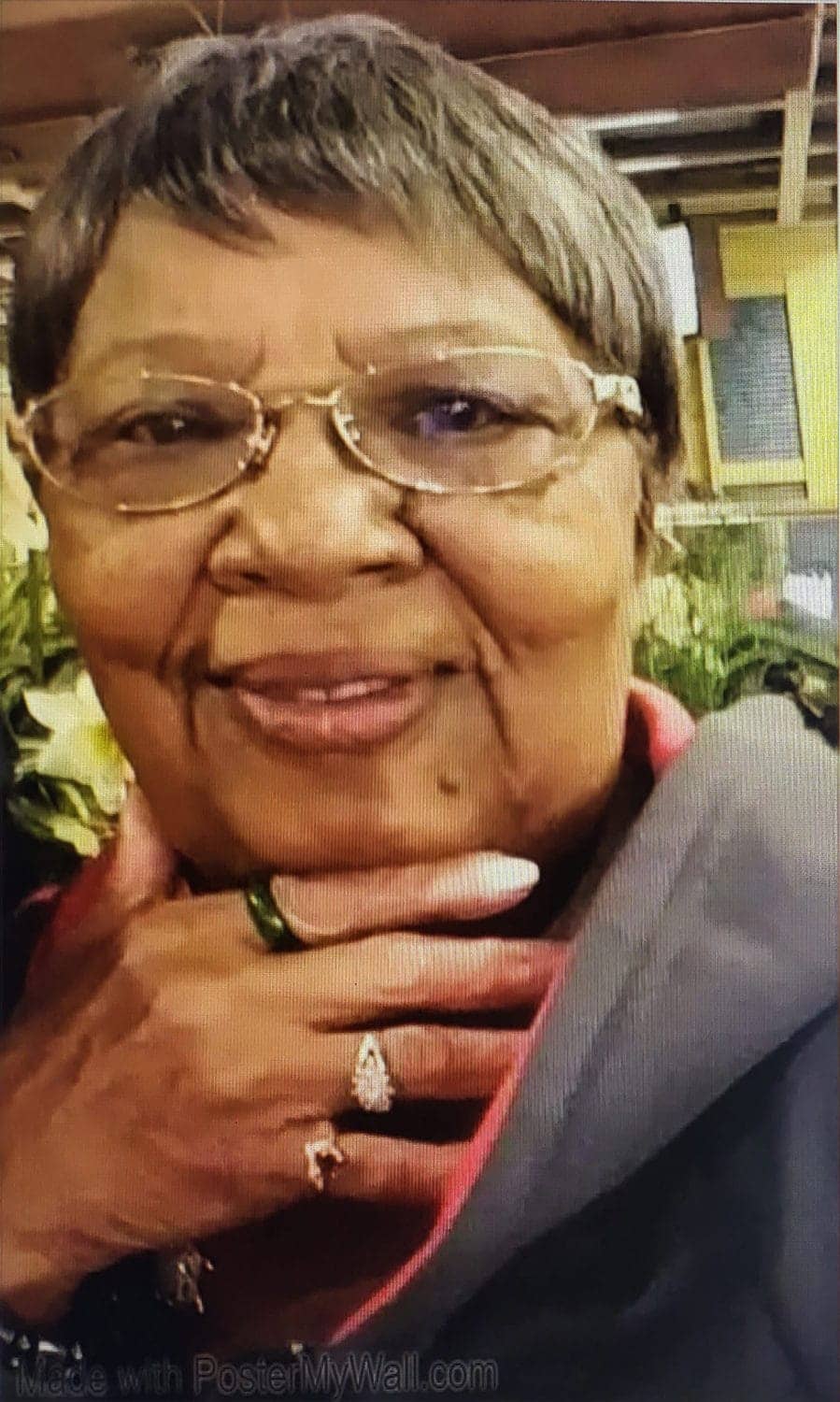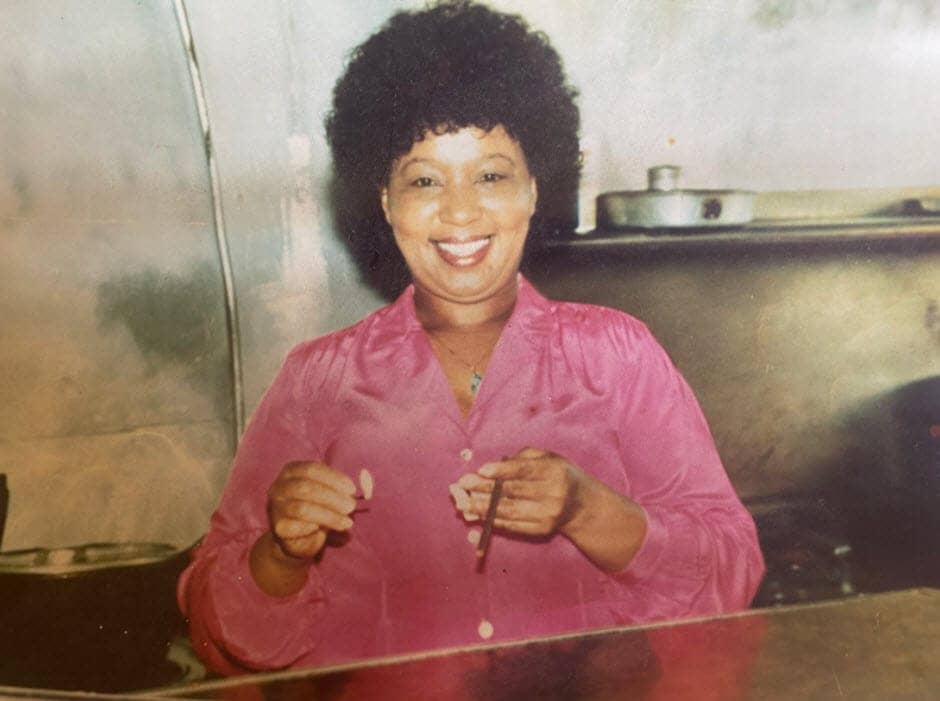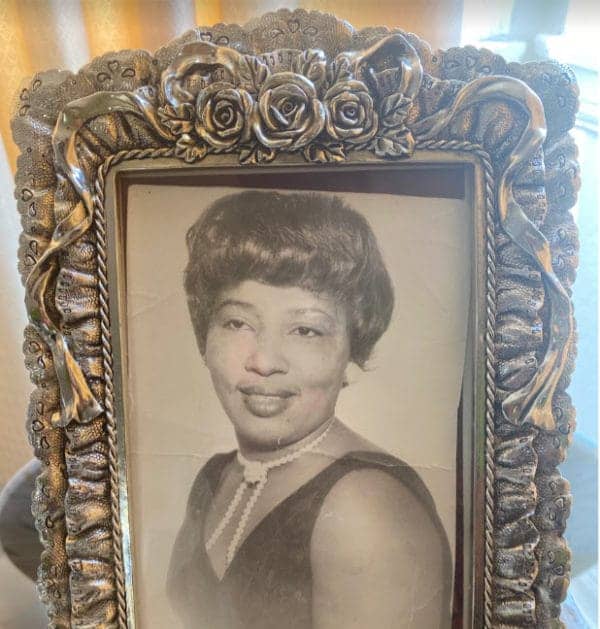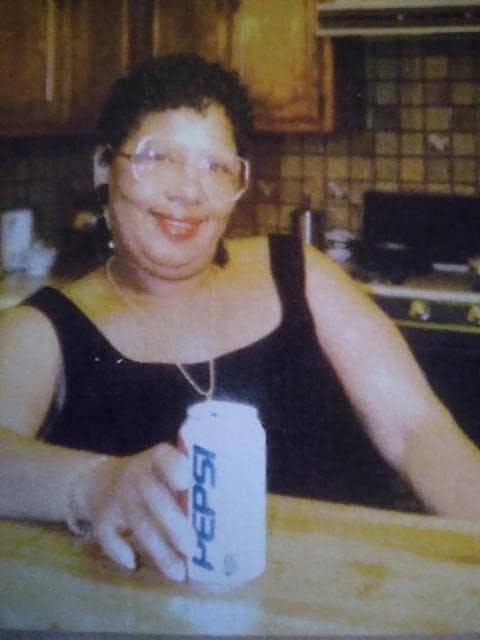
by Aliyah Dunn-Salahuddin
Today we mourn the loss of a San Francisco culinary legend, Mozell Brooks, former owner of Mozell’s Kitchen once located in San Francisco’s Bayview Hunters Point District on Third Street in between Ingerson and Jamestown streets. Mozell was born April 7, 1937, in Kilgore, Texas. She, like many Black San Franciscans, migrated from the South, coming to California in 1963 as part of the last wave of migrants.

Mozell lost her mother at a very young age and eventually settled with her Aunts Mattie McGowan and Violet Burgess along with other family in San Francisco, California. From 1963 to 1965, Mozell worked as a housekeeper and a part-time waitress at the Princess Restaurant on Divisadero Street in the Fillmore District.
Even though she never received any formal education and grew up during the Depression Era in the Jim Crow South, she became a smart and savvy business owner in one of the world’s most renowned cities. In 1969, she went from server to owner, taking over ownership of the Princess Restaurant, and renamed it Mozell’s Kitchen.

In 1987, Mozell relocated her business to the Bayview Hunters Point District with the help of friends and family. In 1999, the honorable Mayor Willie Brown designated May 14 as Mozell’s Kitchen Day in San Francisco, stating that “Mozell’s is one of my favorite restaurants in our city.”
Anyone who knew Mozell knew that she spoke her truth and made sure you knew whose food you were eating. On any given Wednesday through Friday, there would be a line of customers out the door waiting to get a plate of a variety of Texas inspired Southern cuisine, which included oxtails, snapper, fried chicken, baked turkey wings and dressing, chitlins, BBQ ribs, mac’ and cheese, string beans, collard greens, okra and tomatoes, meatloaf, and a dessert of banana pudding or peach cobbler.

Everyone knew that you would get no service unless you clearly stated whose food you wanted. She might ask, “Whose chicken you want, Popeyes? KFC?” and if you didn’t reply, “No ma’am, I want Mozell’s,” you wouldn’t get a thing. She loved her customers who took care of her, helped her to bust dishes or clean tables if she was busy.
Mozell’s Kitchen was a community space where everyone from politicians to executives, Muni bus drivers and teens would come to the purple restaurant for a taste of home. People would eat her food while reading the Bay View National Black Newspaper on her purple table clothed tables covered in plastic.
Every Christmas and Thanksgiving she opened her home to family and friends for spirited conversations over eggnog, cornish hens, dressing, collard greens, baked ham, macaroni and cheese, string beans and candied yams.

Mozell loved God first and foremost, she loved her family (both given and chosen), she loved cooking, she loved the blues and gospel, she loved being a Black woman, and she loved Bayview Hunters Point. Her life is an example for all people, especially young Black women, that no matter where you come from, no one can define you but yourself.
Growing up, she would tell my sisters and me stories about growing up in Texas. In one story she recalled, “We would get dressed and walk through the woods to the juke joint to listen to the low-down dirty blues.” I am sure that she is smiling down from heaven, cigarette in hand, swaying to the uninterrupted sounds of the blues. Rest in peace, Mozell Brooks, San Francisco’s mother of soul, who would never let you forget that her food was “hot, baby.”
Aliyah Dunn-Salahuddin, PhD candidate in history at Stanford University, former African American Studies Department chair at City College of San Francisco and a dance performing artist, can be reached at salahudd@stanford.edu.





